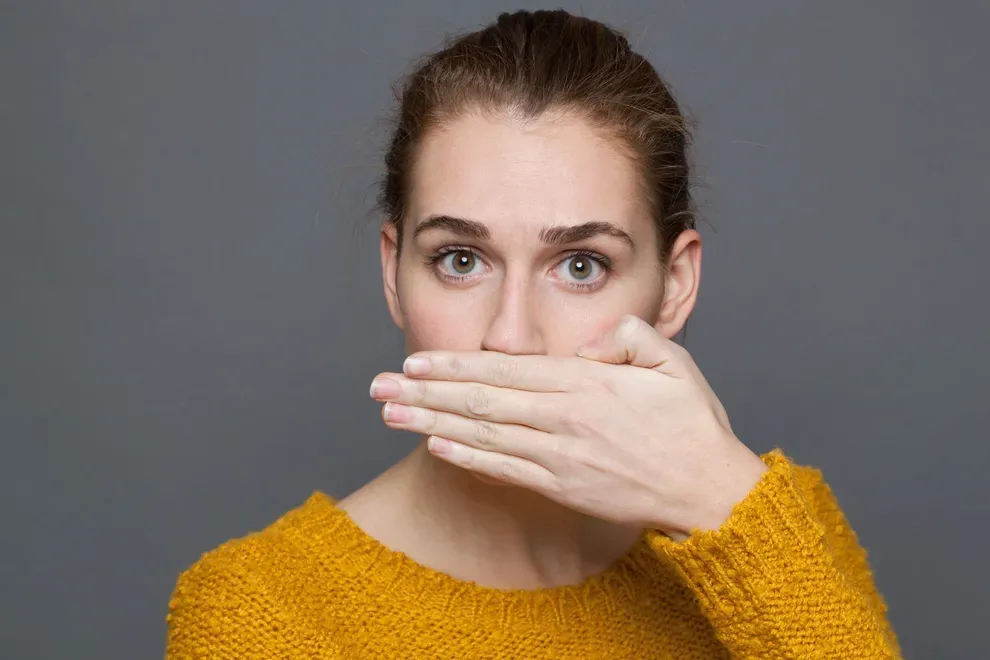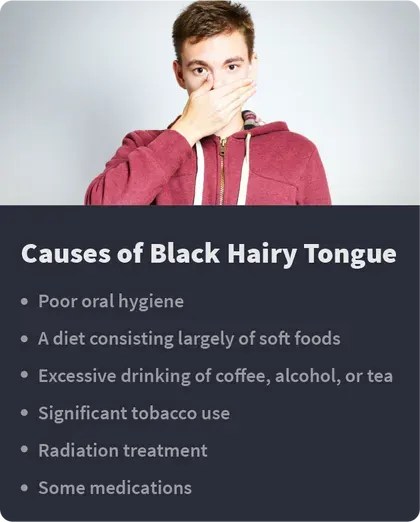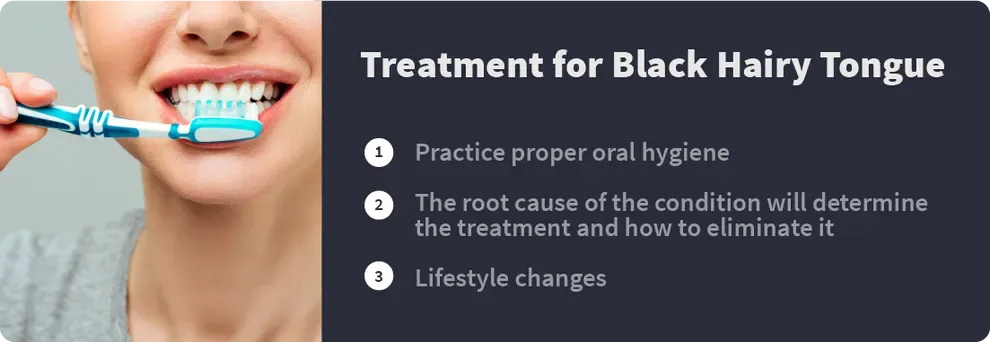Black Hairy Tongue: Causes, Diagnosis & Treatment

Table of Contents
- What Is Black Hairy Tongue?
- Causes
- Signs & Symptoms
- Treatment Methods
- When to Call the Doctor
- References
Black hairy tongue is a medical condition that is considered to be benign, with the main issue being the way it looks.
It does not generally have many other symptoms other than the appearance of hair on the back of your tongue. The hair is not always black either. It can be a variety of other colors. Black hairy tongue syndrome affects 0.6 to 11.3 percent of the population.
Black hairy tongue syndrome occurs when the small bumps, the papillae, on your tongue do not shed off the way they are supposed to. Instead, they build up and coat the back of your tongue. It can happen for a variety of reasons that give a lack of stimulation to the top of the tongue.
This condition is usually harmless. It can be taken care of through brushing and scraping your tongue.
What Is Black Hairy Tongue?
The small bumps on your tongue are called papillae. They naturally shed off in a processed called desquamation before they grow beyond their typical 1 millimeter. If they do not shed off as they are supposed to, they can grow up to 18 millimeters long. This can cause the tongue to appear to have “hair.”
This hair can be white, brown, pink, green, or black in color. Typically, black hairy tongue is caused by specific bacteria or yeast in the mouth.
Black hairy tongue is not a serious condition. There are not usually other symptoms other than the way it looks.
Black hairy tongue generally impacts adults; however, children can get it too.
Causes of Black Hairy Tongue

Black hairy tongue is caused by not enough stimulation on the back of your tongue to help the papillae shed as they are supposed to. This can be related to a number of reasons, such as:
Poor oral hygiene.
A diet consisting largely of soft foods.
Excessive drinking of coffee, alcohol, or tea.
Significant tobacco use.
Radiation treatment.
Some medications.
Debris, bacteria or other organisms can build-up on the papillae resulting in discoloration.
Signs & Symptoms
The main symptom of black hairy tongue is the appearance of black “hair” on the back of your tongue, generally in the center.
You will not usually feel any pain with this condition; however, the “hair” might bother you, causing you to gag or feel tickled. When bacteria or yeast get trapped in the papillae, you may also experience a burning sensation.
Bad breath and altered taste can also be signs of black hairy tongue.

Treatment Methods for Black Hairy Tongue
Depending on the severity of your black hairy tongue, you may be able to manage and treat it at home.
The first thing to do is practice proper oral hygiene. Brushing your tongue, or even using a tongue scraper, can help to shed the papillae and get rid of the unsightly black “hair.” Using your normal toothbrush may cause you to gag, so it can be helpful to get a smaller brush. On a regular basis, brush back there in small circular motions.
To effectively treat black hairy tongue and keep it from coming back, you will need to know what the root cause is and eliminate it. For example, if your black hairy tongue is caused from excessive coffee drinking, you will need to cut back on your coffee consumption. If the condition is caused by medications, contact your doctor before stopping them.
Black hairy tongue can often be managed through lifestyle changes and good oral hygiene without medical intervention.
When to Call the Doctor
If your black hairy tongue is still not going away after at-home management, or it keeps coming back, contact your doctor or dentist.
No tests are needed to diagnose black hairy tongue, and it will sometimes need to be treated with antifungal medications or a specialized mouthwash.
As a last resort, a surgical laser treatment is an option to remove the black “hair” from the back of your tongue to improve your appearance.
